Plastic waste has been a visibly mounting issue in Malaysia for over a decade now with increasing news reports on landfills affecting residential neighbourhoods. The situation further worsened with mainland China’s ban on plastic waste in early 2018, which had a ripple effect.
It opened a floodgate of plastic waste exports from developed countries such as Germany, the US, Japan and the UK among others, to developing countries, specifically in Southeast Asia (SEA).
And among the many SEA countries, Malaysia became one of the main dumpsites used for the plastic waste trade. Our investigative efforts began alongside distressed local communities and activists such as Pua Lay Peng who reached out for solutions.
Our pre-investigative work started in July 2018 followed by full-on field investigations by October 2018 of four extensively affected areas. These landfills were in Klang, Ipoh and two in Jenjarom.
Our report on the imported plastic waste trade and the globally broken recycling system was launched in November, 2018. With a follow up investigation on the toxic after-effects of imported plastic waste, reported in 2020.
November 27, 2018 :
Greenpeace report launched – The Recycling Myth
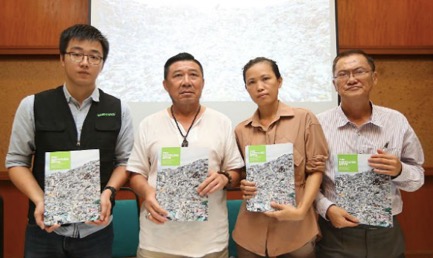
Together with local activists in Jenjarom, Greenpeace launched report ‘The Recycling Myth’ to expose global broken system of the plastic waste recycling industry, calling governments and corporations to set clear reduction of single-use plastic. Download the report here.
December 4, 2018 :
Handover of Greenpeace Malaysia’s “The Recycling Myth” report to Selangor Government
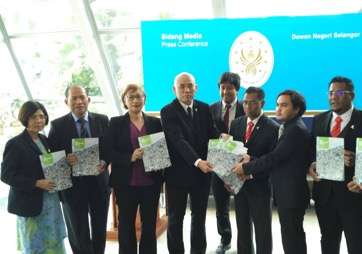
Greenpeace project assistants hand over Greenpeace report to all 56 Selangor assembly politicians, calling the state government take action against illegal plastic waste recycling factories and provide support to local community members who were affected by illegal plastic waste pollution.
December 5, 2018 :
Meeting with Eugenie Sage, New Zealand Associate Minister of the Environment
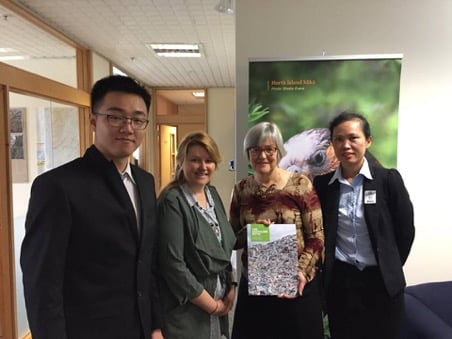
As New Zealand also exports plastic waste to Malaysia, Greenpeace also met with Eugenie Sage, New Zealand Associate Minister of Environment to talk about the broken global plastic waste trade in Malaysia, together with Greenpeace New Zealand’s Ocean Campaigner Emily Hunter (second from left) and Malaysia local community Lay Peng (right), to call on New Zealand Government to act by banning plastic waste exports to overseas countries.
January 17, 2019 :
Malaysian Government raids the illegal plastic waste recycling industry
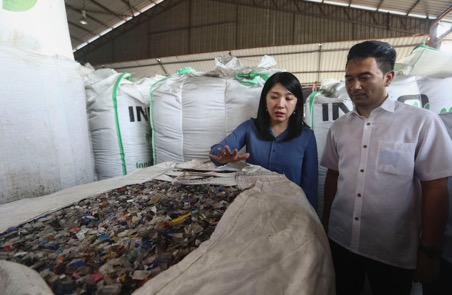
Environment minister Yeo Bee Yin raided several illegal plastic waste recycling factories with the aim of shutting down 100 illegal plastic waste factories by the first quarter of 2019 as mentioned in local online news portal, the Malay Mail.
January 19, 2019 :
Meeting with Housing and Local Government Minister Zuraida
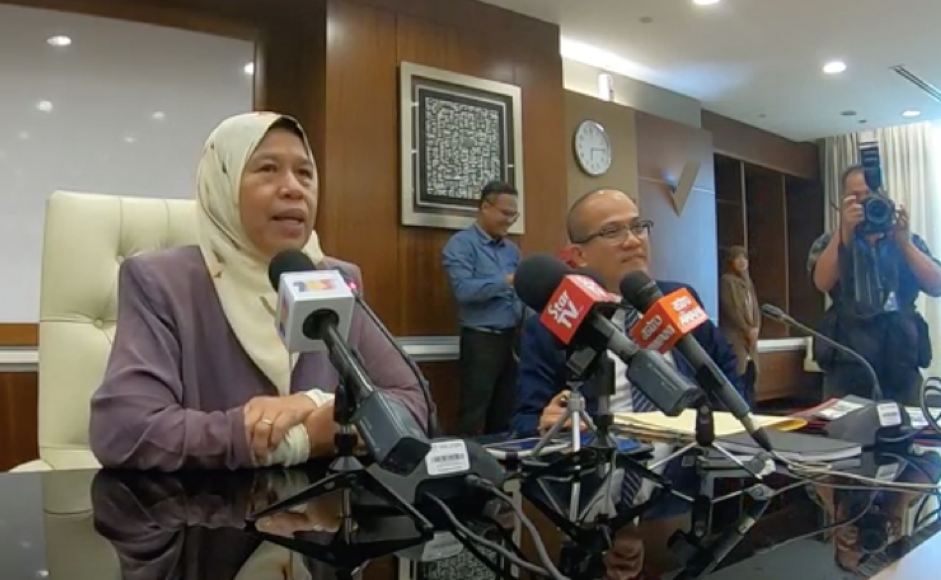
Greenpeace attended a meeting with Housing and Local Government minister Zuraida Kamaruddin and National Solid Waste Management Department director-general Ismail Mokhtar, with an update: new 18 regulations that need to be complied with for AP holders to be allowed to import clean plastic scrap.
January 23, 2019 :
Selangor Exco invited Greenpeace to join raid on illegal factories in Selangor
Greenpeace was invited by Selangor Exco for Local Government, Public Transportation and New Village Development Ng Sze Han to join in the raid of illegal illegal factories in Selangor and bear witness to their efforts. Watch the raid here.
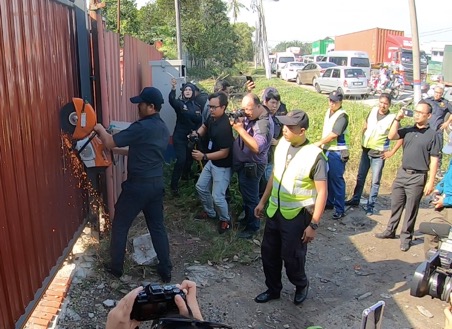
After the crackdown by Selangor state government that continued until March 2019, most of the illegal plastic waste recycling factories reduced. But at the same time, we also found new plastic waste dumping sites at Teluk Gong, Klang and Sungai Petani, Kedah.
March 24, 2019 :
Kedah State Government called for a stop to the issuance of Approved Permits (AP) for imported waste
Kedah Exco for Environment and Climate Change Simon Ooi announced that more than 10 illegal recycling waste factories have set up in Sungai Petani, Kedah. Due to their capacity of handling pollution in the plastic waste recycling industry, Kedah Government announced for a stop to the issuance of Approved Permits (AP) for imported waste.
April 6, 2019:
Illegal open burning.
The plastic waste recycling site at Pulau Indah , Klang was burned. The authorities are still investigating the cause.
April 13, 2019:
Meeting with local community in Sungai Petani, Kedah
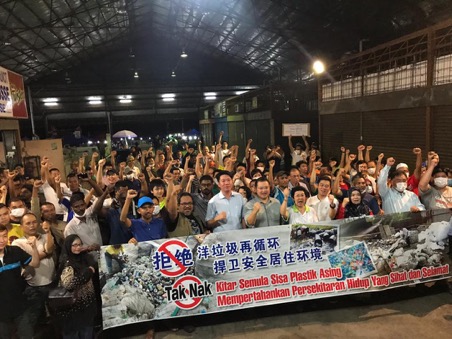
Local community members voice their protest against pollution caused by unregulated plastic waste recycling.
Greenpeace meeting with local community members at Sungai Petani and Kedah State Exco of Environment and Climate Change Simon Ooi to investigate pollution caused by unregulated plastic waste recycling industry.
April 18, 2019:
Two fires within a month in Kedah
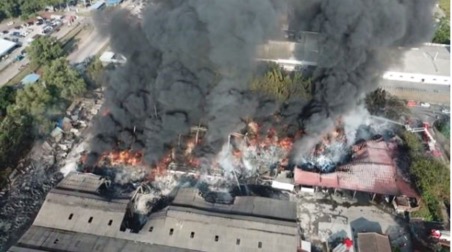
There were two major fires involving plastic waste recycling factories in Sungai Petani, Kedah within the same month. The authorities are still investigating the cause.
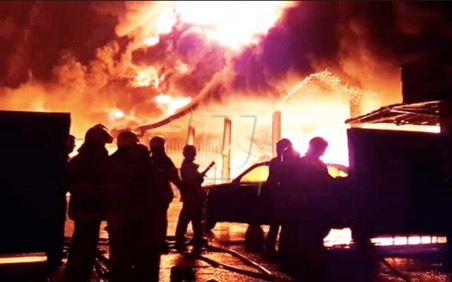
The Sungai Petani fire rescue team rushed to extinguish the flames at a plastic waste factory, Green Mark Technology Sdn Bhd, in the Bakar Arang Industrial area, Sungai Petani, Kedah.
May 24, 2019:
Last year (in 2018), Greenpeace Malaysia, Malaysia local community activist Lay Peng and Greenpeace New Zealand spread the word that waste from New Zealand is being illegally dumped or burnt in secret in Malaysia.
We spoke to New Zealand’s Environment associate minister Eugenie Sage about the global plastic waste trade.
Now, Eugenie Sage warned New Zealand companies exporting waste to Malaysia to comply with regulations as Malaysia gears up to send waste back to their countries of origin as reported here.
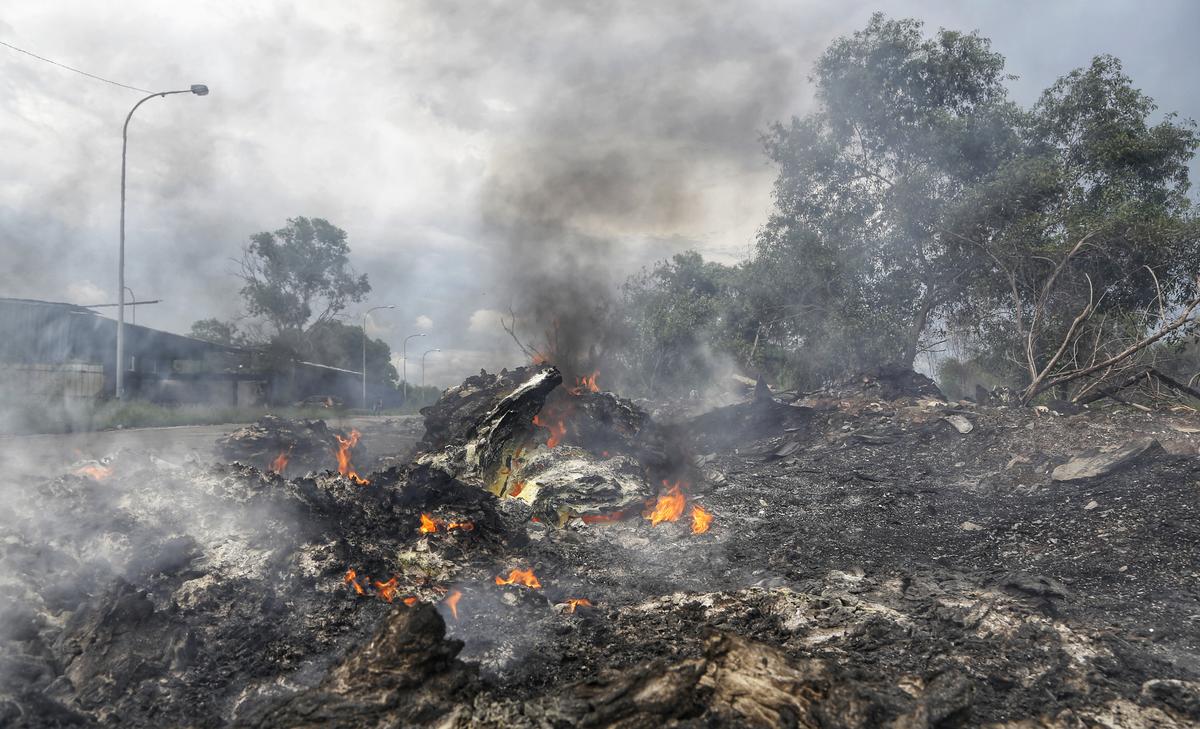
May 28, 2019:
Energy, Science, Technology, Environment and Climate Change (MESTECC) minister Yeo Bee Yin announced the shipment of 450 metric tonnes of contaminated plastic waste from 10 containers back to their countries of origin. With the possibility of sending 3,000 metric tonnes from another over 50 containers following a full investigative process.
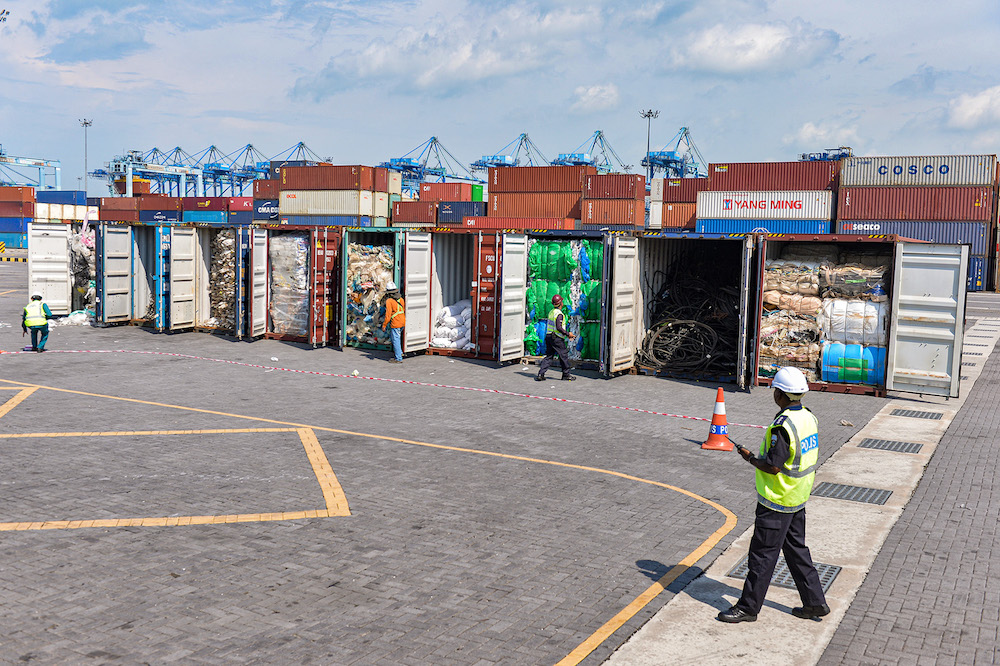
Read the full story here.
May 30, 2019:
Remember the heaps of imported plastic waste we discovered, piling up at least 1 to 2 storeys high at a landfill in Jenjarom?
Well, we went back again to check on the situation and were pleasantly surprised to see the towering stacks of waste were all but gone.
It’s all thanks to the efforts of Jenjarom community members who kept driving the issue forward, and our Malaysian government’s affirmative action tackling the plastic waste export crisis.
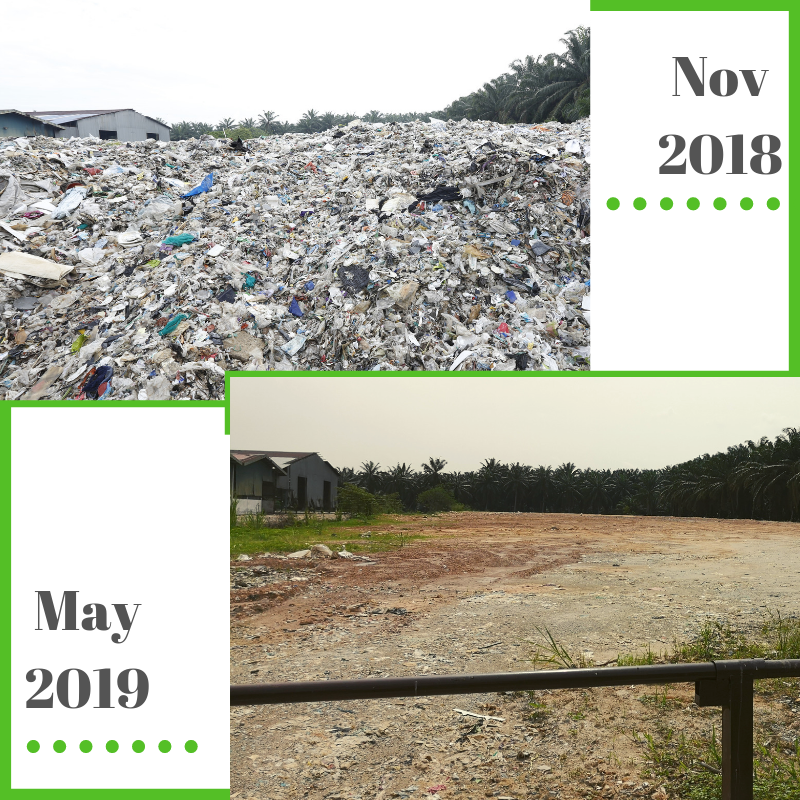
30 May 2019:
While some of the plastic waste has been cleared from Jenjarom, we also received many more complaints at Sungai Petani (Kedah) and Penang, the Northern region of Peninsular Malaysia. Penang port for example, was found with 2 times more imported plastic waste than Port Klang. It comes up to about 7, 420 tonnes of unwanted plastic waste from Canada, the United States, Belgium, Germany, Hong Kong and Japan, which has been stranded at the Butterworth port since January 2019. This effectively beats the 3, 000 tonnes of plastic waste from 60 containers found in Westport in Port Klang, Selangor. The government recently ordered the plastic waste from Westport to be shipped back to their ports of origin.

20 Sept 2019:
A group of 250 residents held a peaceful rally in Sungai Petani to protest against companies importing plastic waste, which community members say are still in operation, ‘day and night’, despite being sealed off by the local council. Spokesperson for the group Lydia Ong said that last April, the Kedah government announced that no more licences would be issued to any imported waste recycling factories.
2 Oct 2019:
Penang state government is doing all it can to get the almost 400 containers packed with municipal plastic rubbish from foreign countries sent back, but only 10 out of the 397 containers filled with plastic waste at North Butterworth Container Terminal (NBCT) have been sent back to their countries of origin since they were discovered last year.

19 October 2019 :
After months of global outcry over the United States’ role in the plastic pollution crisis, US companies that collect and dispose of waste are trying to clamp down on the amount of American refuse that gets dumped in poorer countries.

This global problem is still ongoing. Existing monitoring and enforcement policies and practices in developing countries like Malaysia are inadequate to put a stop to these unregulated burning and dumping activities. And it is estimated that by 2050, there will be 12 billion tonnes of plastic waste in natural environments. Greenpeace is demanding for corporations and governments to fix this global broken system that harms the planet. The battle continues!
